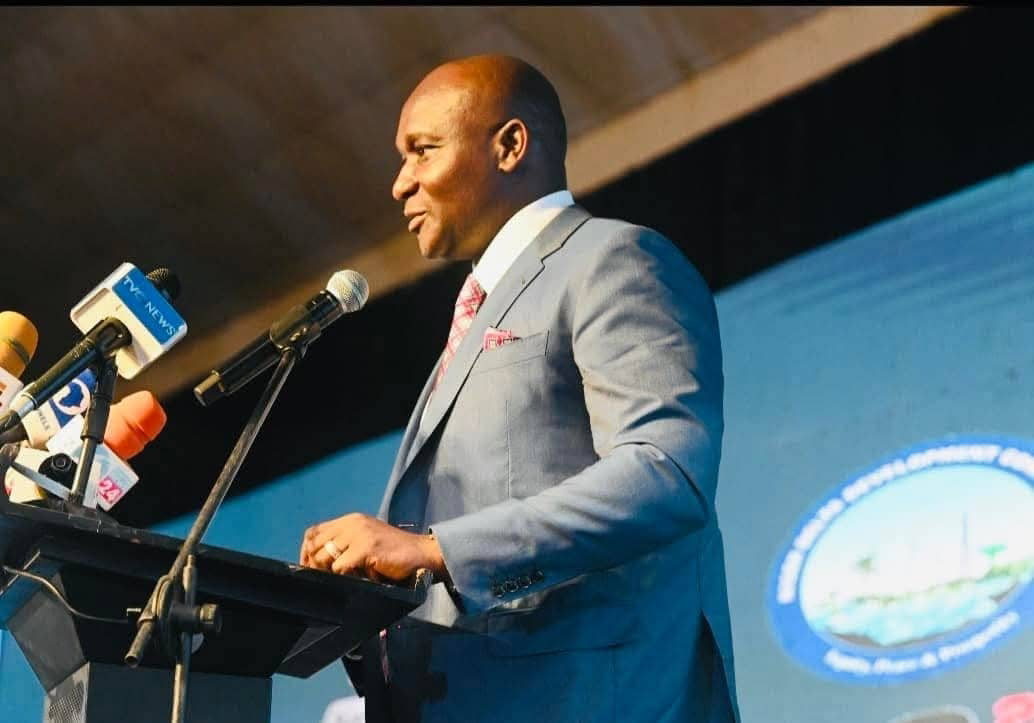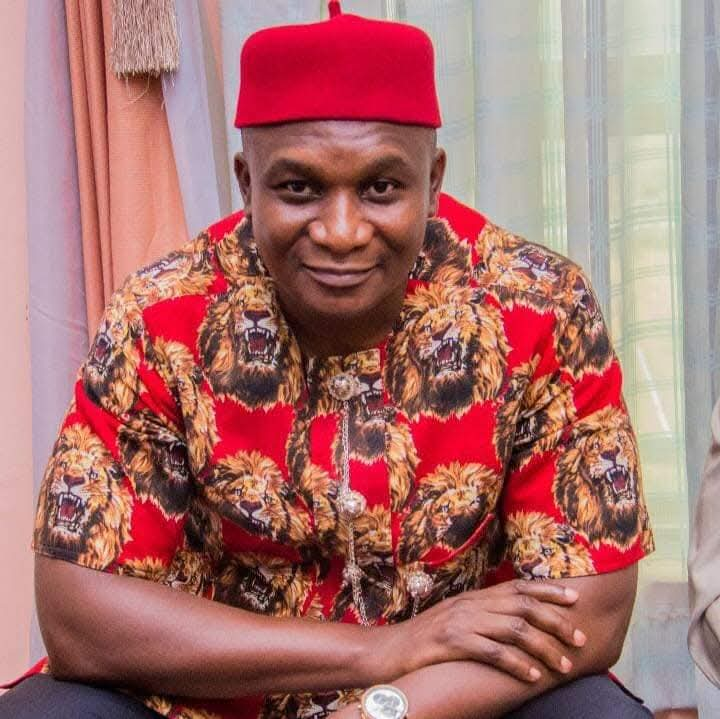By Godknows Igali
Thank you for reading this post, don't forget to subscribe!The word “Titan” is derived from the panoply of divine beings and mythologies that give ancient Greek literature special savour in literary cycles. Today, the usage “titan” is often ascribed to someone who is god-like and influential in given fields. On 4th September 2024, that word resurfaced compellingly in Lagos to remember a contemporary giant, Pa Akintola Williams, one year after his departure on 11th September 2023. The glitterati and optics were deservedly grand, with the likes of former President Olusegun Obasanjo, former Commonwealth Secretary-General, Chief Emeka Anyaoku, 60th National President of ICAN, Chief Davidson Chizuoke Alaribe, former INEC Chairman, Prof. Attahiru Jega, and many others in attendance.

Indeed, Nigerians, and, to a large extent, the global community will, for genuine reasons, celebrate with luxuriate reckoning the remarkable life of this iconic figure who lived a full and vibrant 104 years. His exceptional professional achievements, devotion to good causes, bond to community and dedication to national altruism left an indelible mark on the lives of all who knew him. As a true national and professional leader, he mentored and guided others, sharing his lifelong knowledge and experience in figures and financial matters on how the national economy can grow to build a better Nigeria.
A Towering Professional Footprint
Very few Nigerians before him and now have made the kind of impact on national life as has been done by Pa Williams. He was rightly known as the doyen of Nigeria’s private sector as his legacy touched virtually every sector of the business world. Primarily, his professional patrimony was in Accountancy where he became the first Nigerian to be qualified and years later; he found a home-grown firm known as the Akintola Williams & Co in 1952. This he did after a stint in the Civil Service as an Assessment Officer with the then Inland Revenue Service.At the time when Pa Williams established his company; no other African had such an outfit with the capacity to challenge the dominant foreign firms that controlled the auditing profession. In doing so, he consolidated his practice and became a father to almost every other Nigerian and West African who took to that profession. His firm also became the breeding ground for several generations of accountants who needed to undertake professional pupillage.
Though the first African to qualify as a Chartered Accountant, he knew when it was time to break off from the parent body – Association of Certified Chartered Accountants (ACCA) of England and Wales which has existed since 1904. Together with a handful of Nigerians of like minds, including his friend and in-law, Chief F.C.O. Coker, who were also holders of ACCA, a professional organisation in the sector known as the Association of Accountants of Nigeria (AAN), came into being in 1960. Thereafter, they started to work towards having a body that was chartered and created by an Act of Parliament, a feat which was attained on 1st September, 1965 with Institute of Chartered Accountants of Nigeria (ICAN) as name.
The new body was to keep the highest level of professionalism in the accountancy profession by training and mentoring practitioners. Pa Williams headed the Association of Accountants of Nigeria (AAN) from 1960 to 1962 and yielded to Chief Coker, whose tenure continued from 1962 to 1966, during which period ICAN came to being. Thereafter, he personally nurtured all the other 58 men and women who have come to lead ICAN throughout its existence.As was expected, ICAN maintained the same standards and qualities it inherited from the ACCA of England and Wales and sustained the highest norms of practice. This enabled ICAN to earn for itself a name and in the course of time, obtained accreditation to the International Accounting Standards Committee (IASC), the global supervising body for the profession which came into being in June 1973 (International Accounting Standards Board). In all of these international bodies, Pa Williams enjoyed a reputation as one of the most respected and sat on their Boards for years. He had among his contemporaries on the world scene such notables as Sir N.O. Benson of the United Kingdom, John Cumming of the United States, Joseph Hepworth of Australia, Steven Elliot of Canada and John Kirkpatrick, all of whom are most outstanding accountants.
Today, ICAN has over 60,000 members in Nigeria and branches in virtually every major city. Indeed, ICAN certificates are much valued and serve as additional requirement for recruitment and career progression in many establishments in both public and private sectors. When a new body, the Association of National Accountants of Nigeria (ANAN) was chartered by an Act of Parliament in 1993, the presence of Akintola Williams helped to douse the high tension and cut throat rivalry between the two institutions. Although he was doyen of ICAN, he saw the entire profession as his domain and helped to restore order.
In course of time, he merged his company, Akintola Williams with erstwhile rival international accounting firm, Deloitte, forming Akintola Williams and Deloitte, thereby becoming the largest professional service firm in the sector in Nigeria. That notwithstanding, he kept his tentacles and fatherly coverage over the entire profession in the country.
A Business Maestro
Realising the connection between practice of Accountancy and the national economy, he worked assiduously towards the establishment of a viable Stock Exchange in Nigeria. This was to ensure the maintenance of liquidity, facilitating investments, raising capital and helping to ensure existence of a healthy national economy. Pa Akintola insisted that financial instruments like stocks and bonds may be traded effectively, for Nigeria to take itself to be the premier platform in Africa for raising capital and facilitating a thriving market for securities.
As part of this economic nationalism, Williams along with his peers, Theophilus Adebayo Doherty, Sir Odumegwu Ojukwu, Alhaji Shehu Buba and their foreign partner, John Holt Limited, undertook this huge exercise to create a market where trading could be in Nigerian currency. The Lagos Stock Exchange (LSE) as it was called then was established in 1961 and formatted to grow to come at par with, say, New York Stock Exchange which was established in 1792 and the London Stock Exchange which was formed since 1877. Today, the Nigeria Stock Exchange which it has evolved into, has a total of 393 listed securities, comprising 161 companies and a robust fixed income market with at least 84 Federal Government Bonds, 21 State Bonds and 27 Corporate Bonds. Its total market capitalisation is over N56.45 Trillion.
In the real economy, Akintola Williams became the moving spirit behind so many business ventures. Suffice to mention Chairmanship positions which he occupied at the founding days at Nigeria Breweries Limited, Guinness Nigeria, Wema Bank, CFAO Nigeria, Nigeria Tobacco Ltd, United Bank of Africa, Nigeria Industrial Development Bank, (NIDB), and Chartered Institute of Bankers.
In terms of professional bodies, he was also one of the brains behind the founding of Nigerian Institute of Bankers (NIB), Nigerian Institute of Management, Nigeria Economic Summit Group (NESG) and the African Business Roundtable. He also played a cardinal role in the growth of the Lagos Chamber of Commerce and Industry (LCCI) and the Nigeria Economic Society.
Endless National Service and Beneficence
For one whose life had continuously been in the front row and under the binoculars of public watch, not surprisingly, he was drafted to hold several public offices both at the national, regional, and state levels. As far back as 1957, he was appointed as Commissioner, Lagos Government Revenue Enquiry. Not long after, he became a member of the Nigerian Government Revenue Allocation Review Committee in 1963 and was given the task of handling the same by the Lagos Government in 1968. He was also Chairman of Federal Income Tax Appeal Commission for a long period of ten years, from 1958-1968, and a member of the Coker Commission of Enquiry, which looked into the Statutory Commission of the former Western Region.
Later on, he got a job as Chairman of the newly created Nigeria Industrial Development Bank (NIDB) and held sway from 1973 to 1978. In 1975, the Federal Government used him as Chairman of the Public Appeal Panel to amend the abnormalities created by the Udoji Salary Review. He was also at a time, member of the Nigerian National Economic Council; Chairman, Federal Government Revenue Mobilisation, Allocation and Fiscal Commission 1980-83 as well as Chairman of the Governing Board of Nigerian Institute for Social and Economic Research (NISER) and Chairman, Lagos State University Teaching Hospital (LASUTH).
His imprint on philanthropy and public works is also much known. Pa Williams was a founding member of the Nigeria Conservation Fund (NCF) when it was established in 1980. Similarly, he remained one of the main pillars behind the Nigeria Red Cross from when it was founded in Lagos in 1960. In other activities, through his Akintola Williams Foundation (AWF), he shared a good portion of his good fortunes to fund all manners of honourable causes across the country. It is in similar context that his cultural and social satiety remained strong as he played a major role in fostering the creation or growth of such associations as the Ikoyi Club in 1938, Abeokuta Golf Club, Lagos Yacht Club and the Metropolitan Club, Lagos. He was also one of the main patrons of the growth of classical music in Nigeria, including the development of the Muson (Musical Society of Nigeria) Centre, Marina, Lagos.
Back to his Ancestry
His direct origin goes back to the town of Abeokuta in Nigeria’s Ogun State, known for its impressionable Olumo Rock and the heartbeat of Nigeria’s cocoa production belt. Historically, the Egba people of Abeokuta are one of the most outstanding sub-groups of the Yoruba ethnicity and is where Bishop Ajayi Crowther had the nascence of his missionary work. The fact that Abeokuta also had bits of Owu, Ijebu, and other Yoruba elements makes it a centre of cosmopolitanism and knowledge. Interestingly enough, it is also the birth place of some of Nigeria’s most celebrated persons, including Nobel laureate, Prof. Wole Soyinka, Africa’s ace statesman, Chief Olusegun Obasanjo, and musical icon, Fela Anikulapo. No wonder, playwright and poet, Odia Ofeimun, described the city thus: “from the banks of Ogun to the hills so high, Abeokuta spirit thus touch the sky; a city of royalty”. Not surprising, therefore, many of Nigeria’s early educated people came from Abeokuta, giving the city a special place in the country’s history.
The Williams family itself was one of the eminent in the city and played a major role in various church and missionary activities. It is on that score that the family became greatly involved in pursuing higher education; becoming the most outstanding in some professions. His immediate younger brother, Chief Frederick Rotimi Williams, one of the foremost Nigerian lawyers and became the first national to become a Queen’s Counsel as Senior Advocate of Nigeria Their father, Thomas Akindayo Williams, was a clerk in the colonial service and later had a legal practice in Lagos. Pa Akintola Williams started his formal education at Olowogbowo Methodist Primary School, Lagos, after which he proceeded to Nigeria’s pioneer secondary school, CMS Grammar School, Bariga, Lagos. The school, which was the first of its kind in Nigeria from 1859, later went on to become the breeding ground for some of the best nationalists in Nigeria and the who-is-who in the country’s early life. These included Sir Herbert Macaulay, former Nigerian President, Ernest Shonekan, legal luminary, G.O.K. Ajayi, pioneer business mogul, Henry Fajemirokun, and the Ransome Kuti brothers (Prof. Olikoye, Dr. Beko and Fela and many others.
The footmark and record that Pa Williams left in the school still remains glamourized and celebrated almost a century later. This easily earns him a place in the then newly established Yaba College of Technology from where he proceeded to the United Kingdom in 1944 to pursue a degree in Accountancy at the University of London. In 1950, after obtaining a degree in Commerce and qualifying as ACCA in 1952, in record time and the first African to attain that status, he worked in the United Kingdom and returned to Nigeria to sharpen his skills and found the first indigenous accountancy firm. Today, that company has a record 600 staff.
A Garland of Honours
Due to his long presence in the public space, Akintola Williams’ life was at every stage, adorned with accolades and recognitions. Although these are numerous at professional level, it will be enough to recognise his conferment with Officer of the Federal Republic (OFR) in 1982 by former President Shehu Shagari; Commander of the Most Excellent Order of the British Empire in 1997 and Nigerian National Order of Merit. At the zenith of professional attainment, he was honoured with Fellowship of the Institute of Chartered Accountants of England (ICAE) and Fellowship of ICAN and ANAN. He was honoured with an honorary doctorate degree by the University of Lagos (UNILAG) and, in 1995, also received another honorary fellowship from Yaba College of Technology (Yabatech)
Last Word
It is often said that a “life well lived is a legacy that never fades”. The life and times of Akintola Williams will, therefore, always be imbibed in the annals of Nigerian history. Although, he has since departed, leaving an unfillable vacuum but his towering impact continues to inspire and influence future generations of Nigerians not only in his chosen accountancy profession but in virtually all other spheres of national life.
It is commonly said that life is not always a bed of roses, In the case of Pa Akintola Williams, he faced many battles and challenges, including the demise of his soul mate, Ma Mabel Efunnoye. In all the situations, he remained unperturbed and resolute. That is why he was able to pave the way for others to follow, breaking down barriers and achieving many firsts throughout his career and engagements. As once said by the sage, Nelson Mandela, the greatest glory of living lies not in not falling but rising every time you fall. Indeed, Pa Williams’ achievements embody this spirit of resilience and determination. His legacy is a testament to the power of hard work, obsession to a culture of integrity, and an impetuous passion for excellence. For countless generations to come, he will continue to inspire and influence many patriots, business leaders, entrepreneurs, and particularly those from his chosen profession of accountancy.
Adieu, great doyen of good causes.

*Dr. Igali is a retired Federal Permanent Secretary and writes from Abuja
Kindly share





